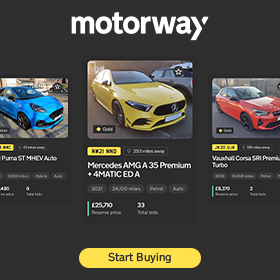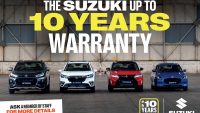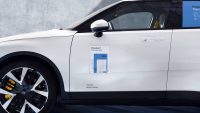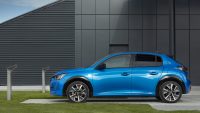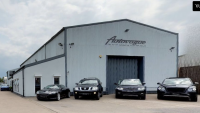The UK’s LCV market grew for the second month in a row in September, the SMMT said this morning.
It rose by 8.3% versus September 2023, with 48,455 new vans, 4x4s and pickups joining the road to record the best since 2020.
The market for smaller vans, weighing up to and including 2.0 tonnes, continued to rise – up 34.1% to 1,180 units as new models drove demand.
Registrations of medium-sized vans, weighing 2.0 to 2.5 tonnes, grew by 34.8% to 9,552, while those of the largest vans, weighing 2.5 to 3.5 tonnes, went up by 8.6% to 31,567, making them the most popular segment with a 65.3% market share.
However, deliveries of pickups and 4x4s fell by 16% and 42.4% respectively to a combined 5,805 units.
Also, despite the overall market growth, battery-electric van registrations fell for a fourth successive month this year and sixth time overall, with 3,020 registered, down 0.5% on the same point last year.
It means 14,188 new BEVs have been registered in the sector since the start of January, 7.7% below the same period last year.
As a result, Battery-electric vans accounted for just 5.3% of all new vans in August – just over half the 10% required by the ZEV mandate.
In response to the situation, the SMMT, along with a number of carmakers, has written an open letter to the government which includes a call for the plug-in van grant to be extended.
When it came to individual models, Ford enjoyed a stellar month, claiming the top three spots, with all manufacturers benefitting from the September plate change.
The top-selling LCVs in August were as follows:
- Ford Transit Custom – 7,570
- Ford Transit – 4,518
- Ford Ranger – 2,980
- Volkswagen Transporter – 2,778
- Peugeot Partner – 2,313
- Mercedes-Benz Sprinter – 2,248
- Renault Trafic – 2,247
- Vauxhall Combo – 2,159
- Vauxhall Vivaro – 2,093
- Citroen Berlingo – 1,829
Mike Hawes, SMMT chief executive, said: ‘Growing overall demand for new vans is encouraging as the sector, a barometer of the UK economy’s health, continues to recover post Covid.
‘But while manufacturers have invested huge sums delivering zero emission technology and incentivising its sale, consistently low demand is constraining industry from meeting Britain’s ambitious zero emission vehicles sales mandates.
‘For van fleets to go green at pace they need the immediate encouragement – and long-term certainty – of fiscal incentives and van-specific charging infrastructure.
‘Without these, UK decarbonisation ambitions cannot be achieved at the world-leading speed demanded by regulation.’










